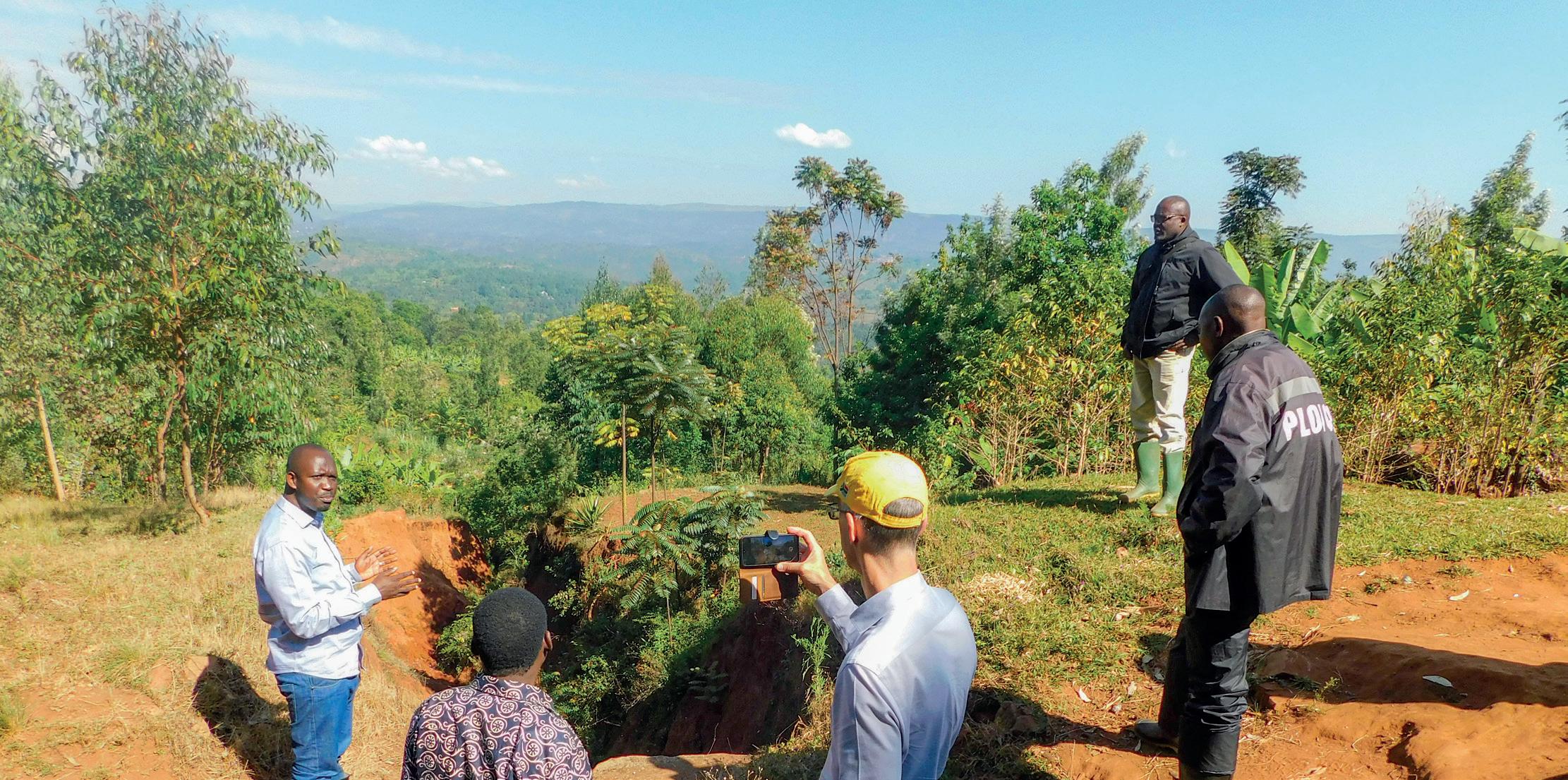
3 minute read
Paul Stuart: the case for hope
The case for hope
In the UK this year we had some experience of the climate in crisis. And now we’re in a cost of living emergency. But when you stand on the edge of a ravine in Burundi you really see how rural African communities are hit first and worst By Paul Stuart, CEO
Advertisement
This trip in June was my first visit back to our country programmes in 26 months. Alex Niyongabo, Project Manager for Burundi, was showing me what happens in Mwaro, where we’re running our Food and Income Security project, when torrential rains sweep down steep slopes towards homes and farmlands. Groups of local people across the hillside were digging trenches to stabilise the slopes and protect their land down in the valley from flooding. It was work made possible by collaboration with the Burundi Ministry of the Environment, Agriculture and Livestock, with funding via Ripple Effect UK.
Quarter 1
Our new strategy sets out a clear direction that solutions must be led from Africa. Africa Director Fred Ochieng joined us in July as the first member of our Africa office in Nairobi. His new team is providing leadership for all our work, supporting our country programmes and ensuring learning is shared effectively.
Quarter 2
The Horn of Africa is suffering from a drought described as the worst for 40 years. In October conflict escalated in the north of Ethiopia: our first priority had to be the safety of our 13 staff who were at the same risk of assault and looting as the families they were working with. In January, our staff members were amongst the first to return, and the shocking sights that met them emphasised more than ever the crucial importance of building people’s resilience and food security. It is a great sign of hope that our work in Ethiopia continues to grow, with three new projects starting this year, including one funded by The Starbucks Foundation.
Quarter 3
We were delighted to sign a formal agreement with Zambian Rainbow Development Foundation who will deliver programmes in Zambia with our support: relationships like these will help us extend our reach.
Quarter 4
After extensive consultation we publicly launched our new strategy and name-change in April. Ripple Effect puts African communities at the heart of what we do and expresses the progress they can achieve. Our Africa Leadership Meeting in Nairobi in June brought us together after two years of virtual meetings, and leaders new and old committed to delivering our ripple effect.
The number of people we are working with increased substantially this year: by over 50 per cent. This significant achievement was possible due to our 13% growth in income, and has been driven by two key choices as we start implementing our 2030 strategy.
Firstly, we are expanding our reach by incorporating community interventions that create our ripple effect, such as peer to peer farmer training. We are also working more through local organisations.
Secondly, we are working longer with communities, such as in our Improving Nutrition projects in Ethiopia and Kenya, in order to build stronger support structures which sustain and expand our work.
We have every confidence that by starting on individual African farms, resourceful rural people can produce enough to feed their communities, their countries and beyond.
Paul Stuart visiting soil stabilisation work in Burundi with our project manager and representatives from our partner the Ministry of Agriculture.









